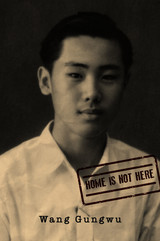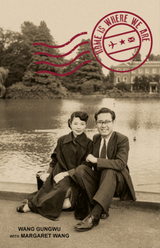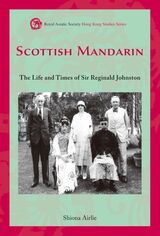
Wang Gungwu is one of Asia’s most important public intellectuals. He is best-known for his explorations of Chinese history in the long view, and for his writings on the Chinese diaspora. With Home is Not Here, the historian of grand themes turns to a single life history: his own.
Wang writes about his multicultural upbringing and life under British rule. He was born in Surabaya, Java, but his parents’ orientation was always to China. Wang grew up in the plural, multi-ethnic town of Ipoh, Malaya (now Malaysia). He learned English in colonial schools and was taught the Confucian classics at home. After the end of WWII and Japanese occupation, he left for the National Central University in Nanjing to study alongside some of the finest of his generation of Chinese undergraduates. The victory of Mao Zedong’s Communist Party interrupted his education, and he ends this volume with his return to Malaya.
Wise and moving, this is a fascinating reflection on family, identity, and belonging, and on the ability of the individual to find a place amid the historical currents that have shaped Asia and the world.

Wang Gungwu’s account of his university education in Singapore and the UK, and the early years of his career as an academic in Malaysia captures the excitement, the ambition, and the choices of a generation that saw it their responsibility to build the new nations of Southeast Asia.
The exploration of the emotional and intellectual journey towards the formation of an identity, treasured by readers of Wang's Home Is Not Here, extends in this volume into an appreciation of love, family life, and the life of the mind. We also see these years from Margaret’s perspective, her own fascinating family story, and her early impressions of this young bearded poet. Wise and moving, this is a fascinating reflection on identity and belonging, and on the ability of the individual to find a place amidst the historical currents that have shaped Asia.

In 1914, Nakeae Ushikichi (1889-1942), gifted son of the famous Nakae Chōmin (1847-1901) and graduate of Tokyo University's Faculty of Law, left behind the opportunities open to him in Japan and went to China. He worked briefly for the South Manchurian Railway and then in the Yüan Shih-k'ai government, but a personal crisis in 1919 turned him suddenly to a life of rigorous scholarship and social criticism. He spent most of his adult life in Peking, published little, deeply influenced a few key compatriots, and became a posthumous hero to a generation of postwar Japanese intellectuals.
In the first full-length study in English of the life and thought of Nakae Ushikichi, Joshua A. Fogel tells the strange story of this cocky, indolent carouser who became a disciplined scholar and passionate advocate of the worth of all humanity. Fogel examines Nakae's Sinological work in the context of his wide reading in German philosophy, Western historiography, and classical Chinese sources. He also translates Nakae's wartime diary.

Naito Konan's periodization of Chinese history is responsible for shaping the twentieth-century Western view of China. Naito was a journalist in the vibrant Meiji press for twenty years, during which he became recognized as Japan's leading Sinologist. He then assumed a chair in China Studies at Kyoto University, where he taught for twenty years, remaining all the while a prolific writer on public affairs. Joshua Fogel's biography treats Naito holistically, pointing up the intricate connections between his Sinological and political interests.
As a part of an ongoing tradition based in jitsugaku (concern with the practical applications of knowledge), Naito focused on what he took to be Japan's mission, after its own Meiji reforms, to help China implement comparable reforms. His emphasis on Chinese history and culture as the central influence in East Asia strengthened his Pan-Asian political convictions.
Fogel's study offers a penetrating look at a scholar-journalist whose influence, fifty years after his death, is still powerful.

READERS
Browse our collection.
PUBLISHERS
See BiblioVault's publisher services.
STUDENT SERVICES
Files for college accessibility offices.
UChicago Accessibility Resources
home | accessibility | search | about | contact us
BiblioVault ® 2001 - 2024
The University of Chicago Press









